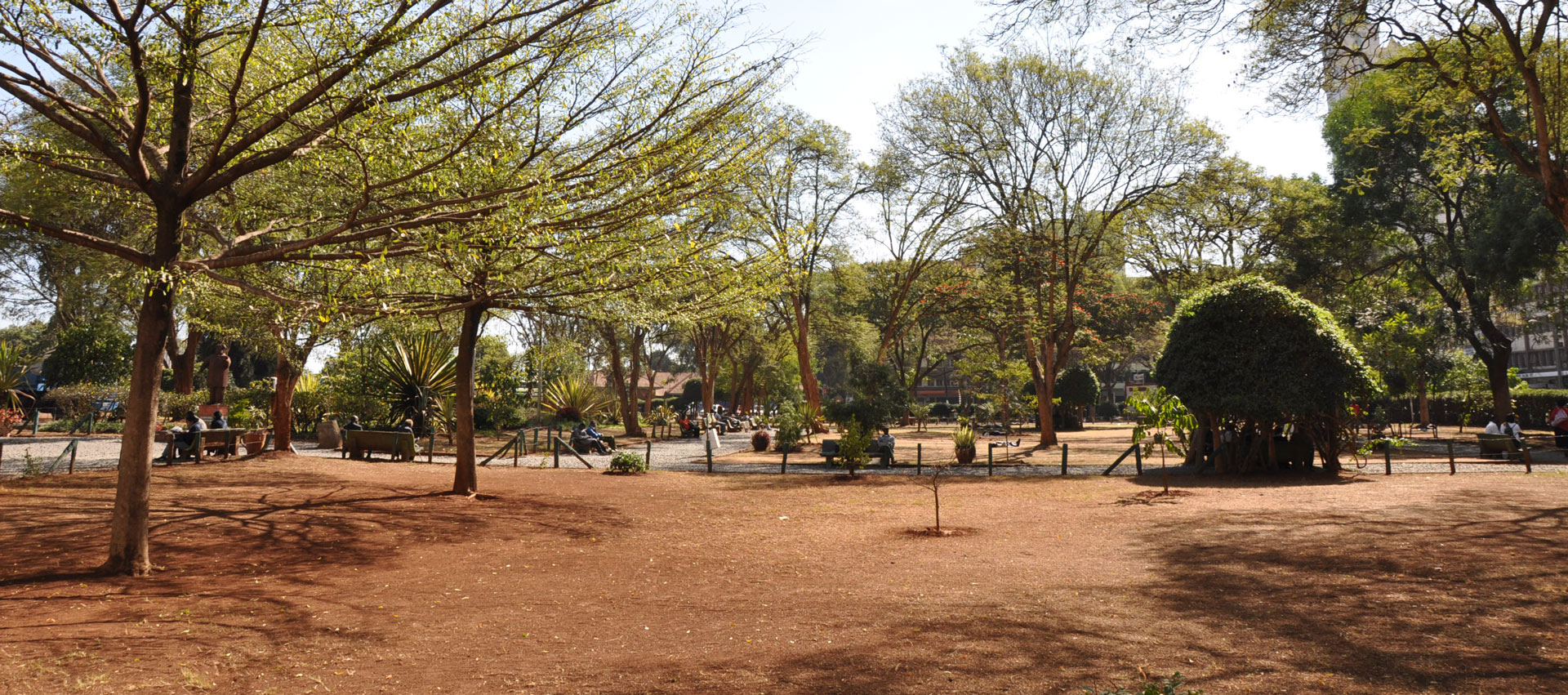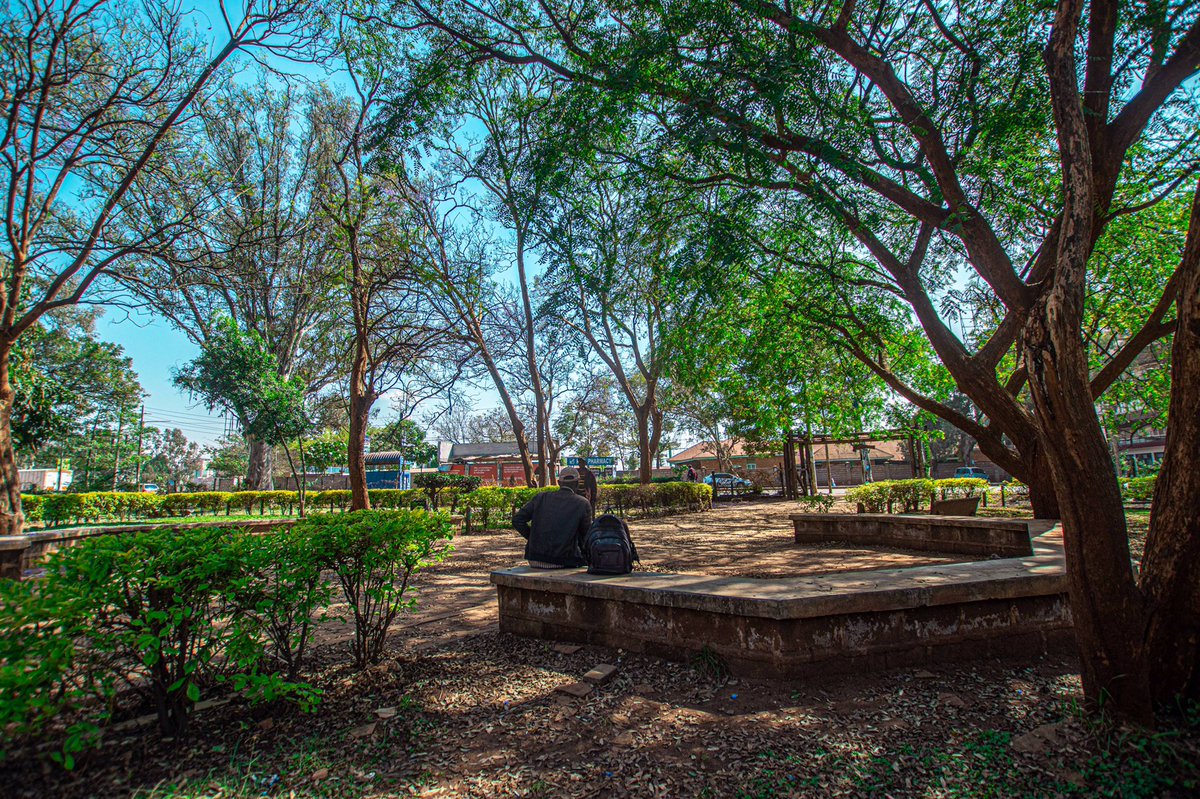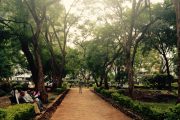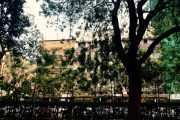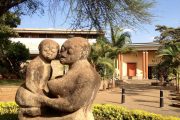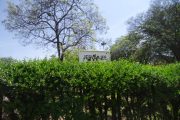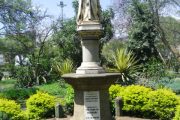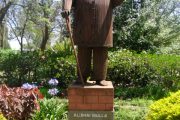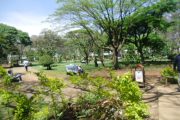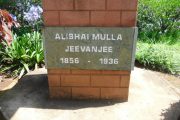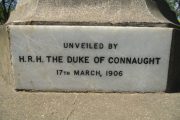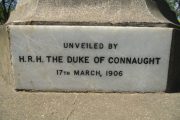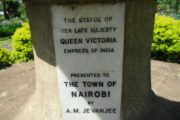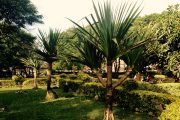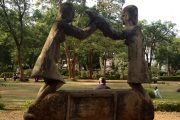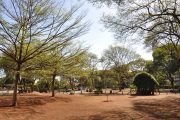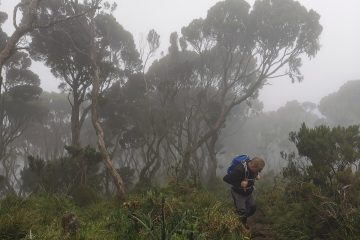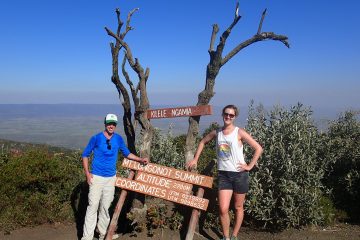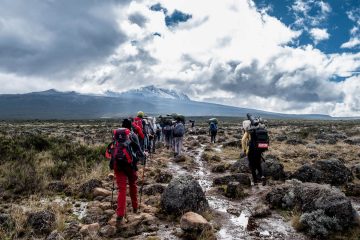Jeevanjee Gardens is an outdoor area in Nairobi’s Central Business District that is open to the general public.
A.M. Jeevanjee, an Asian-born entrepreneur in Kenya, developed Jeevanjee Gardens. It is the city’s only park that is directly owned by the people, having been offered as a resting space to the lovely people of Nairobi (the park was private property and it is held in trust for the people of Nairobi).
Alibhai Mullah Jeevanjee donated this 5-acre recreational park to Nairobi inhabitants in 1906, making it one of the city’s rare green spots.
The park has been threatened with extinction on several occasions, including in 1991 and 2007, when the Nairobi City Council, in collaboration with development partners, planned to develop it by building a multi-story parking lot, bus terminal, markets, theaters, and shopping malls in its place (Zarina Patel, “revitalising” Jeevanjee’s Gardens). Following complaints from Zarina Patel (Jeevanjee’s granddaughter), Wangari Maathai’s Green Belt Movement, and other activists, these plans were postponed each time. Some of these activists were arrested and placed in jail for a few days in 2007 as a result of this issue. Only time will tell if the park will be able to withstand the next assault.
It is a blessing that should be loved and enjoyed by the city’s citizens while it still exists, especially in light of the uncertain future.
How to Get There
To the north of the city center, Moi Avenue, Monrovia Street, Muindi Mbingu Street, and Moktar Daddah Street form the Jeevanjee Gardens. Its central location allows citizens from all parts of the city to readily reach it.
Requirements for Entry
The park is available to the public at no charge.
Alibhai Mulla Jeevanjee
Alibhai Mulla Jeevanjee (1856–2 May 1936) was a Kenyan trader, politician, and philanthropist who was born in India. He was one of Kenya’s first and most powerful Indian settlers, earning enormous money and rising to the top of the Indian community.
Jeevanjee was born to Shia Dawoodi Bohra parents from the western region of present-day Gujarat in Karachi, then part of the Bombay Presidency in British India.
His father was a horse and cart driver with only a high school diploma. He left home at the age of thirty, following the death of his father, to roam India and start a career as an itinerant peddler.
He subsequently relocated to eastern Australia, where he learned English, established a business selling Eastern commodities, attended the 1887 Jubilee Exhibition, and met British authorities familiar with East African commercial potential.
When he returned to Karachi, he started a business that provided stevedoring and translation services to visiting ships. He travelled to Mombasa on a dhow in 1890 to establish a branch of his business there, extending out into road construction, construction, and transportation.
Jeevanjee Gardens
Jeevanjee began building Jeevanjee Gardens in 1906, when he was at the prime of his riches. He gave the gardens to the residents of Nairobi in 1906 as a place for them to rest.
In 1991, these gardens made headlines when it was revealed that certain government officials were planning to transform them into a commercial property. There was a proposal to build a multi-story parking garage, which Jeevanjee strongly opposed. Shirin Najmudean, Jeevanjee’s youngest remaining daughter, relocated to Nairobi to prevent the planned development of the plot of land.
Related

